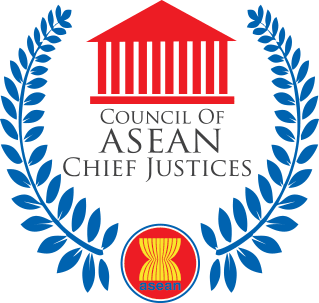Overview on the sources of law
Cambodian Civil Code of Procedure 2007
(https://www.jica.go.jp/Resource/project/english/cambodia/0701047/materials/index.html)
1. Title of Execution and Execution Judgement for Foreign Court Judgement
Cambodian Civil Code of Procedure (hereinafter be called “CCP”) prescribes procedures relating to civil action except as otherwise provided by other laws. The purpose of civil actions is to have courts settle civil disputes in conformity with the law, protecting the rights of private parties.
Under the framework of enforcement foreign judgement provision of the Cambodian CCP, Article 350 paragraph 2 (g) requires a judgement of foreign court in respect of which an execution judgement has been rendered that has become final and binding, to be a title for execution. In this sense, it is obligatory required to have execution judgement from a Cambodian Court to execute a judgement of a foreign court. Therefore, a foreign court judgement shall be sufficiently proven to become final and binding and fulfil the compulsory required set in Article 199 (Effect of Final Judgement of Foreign Court) of CCP, otherwise an application to execute the foreign court judgement shall be dismissed.
In order to have execution judgement of a foreign court, a creditor of compulsory execution is required to file an application to the competent court with jurisdiction of territory over the address of debtor of compulsory execution as being ruled in Article 8 (Jurisdiction conferred by address, etc.) of CCP. In case, there is no court determined to have jurisdiction over the territory, the court of first instance (CFI) having jurisdiction over the territory in which the property that is the object of the claim, Or that can be attached, is located, shall have the jurisdiction to issue the execution judgment.
The Cambodia court will not examine the merits of the foreign court judgement and the execution judgement issued by Cambodia court shall be decided “whether the Execution of the foreign court judgment is permitted.”
The subject matter of enforcement foreign money judgment; however, could be executed against the debtor’s property in the following: 1. Against movable property (Art.384 to Art. 401 of CCP), 2. Against immovable property (Art. 417 to Art. 495 of CCP) 3. Against claim and other property right (Art.402 to Art. 416 of CCP) and 4. Against Vessel (Art.454 to Art.486 of CCP).
2. Effect of Final Judgment of Foreign Court
A final and binding judgment of a foreign court shall be effective only where all of the following requirements have been fulfilled:
a. jurisdiction is properly conferred on the foreign court by law or by treaty which the Kingdom of Cambodia has concluded
b. where the non-prevailing defendant received service of a summon or any other order necessary to commence the action, or responded without receiving such summon or order
c. the contents of the judgment and the court proceedings in the action do not violate the public order or good moral of Cambodia; and
d. there is a guarantee of reciprocity between Cambodia and the foreign country in which the court is based.)
In ephemeral illumination, under the Cambodia’s civil procedural system, to enforce a foreign money judgement shall be subjective to defences in the aforementioned of Art.199 of CCP. As long as the four conditions set in Art.199, has been fulfilled the creditor of compulsory execution shall seek a execution judgement from a competent Cambodian Court which has the territorial jurisdiction or jurisdiction based on property location within Cambodia.
The information in the above write-up is provided only for general guidance and is not intended to be taken as legal advice. Readers and/or users should refrain from acting on the above information without first seeking independent legal advice.
